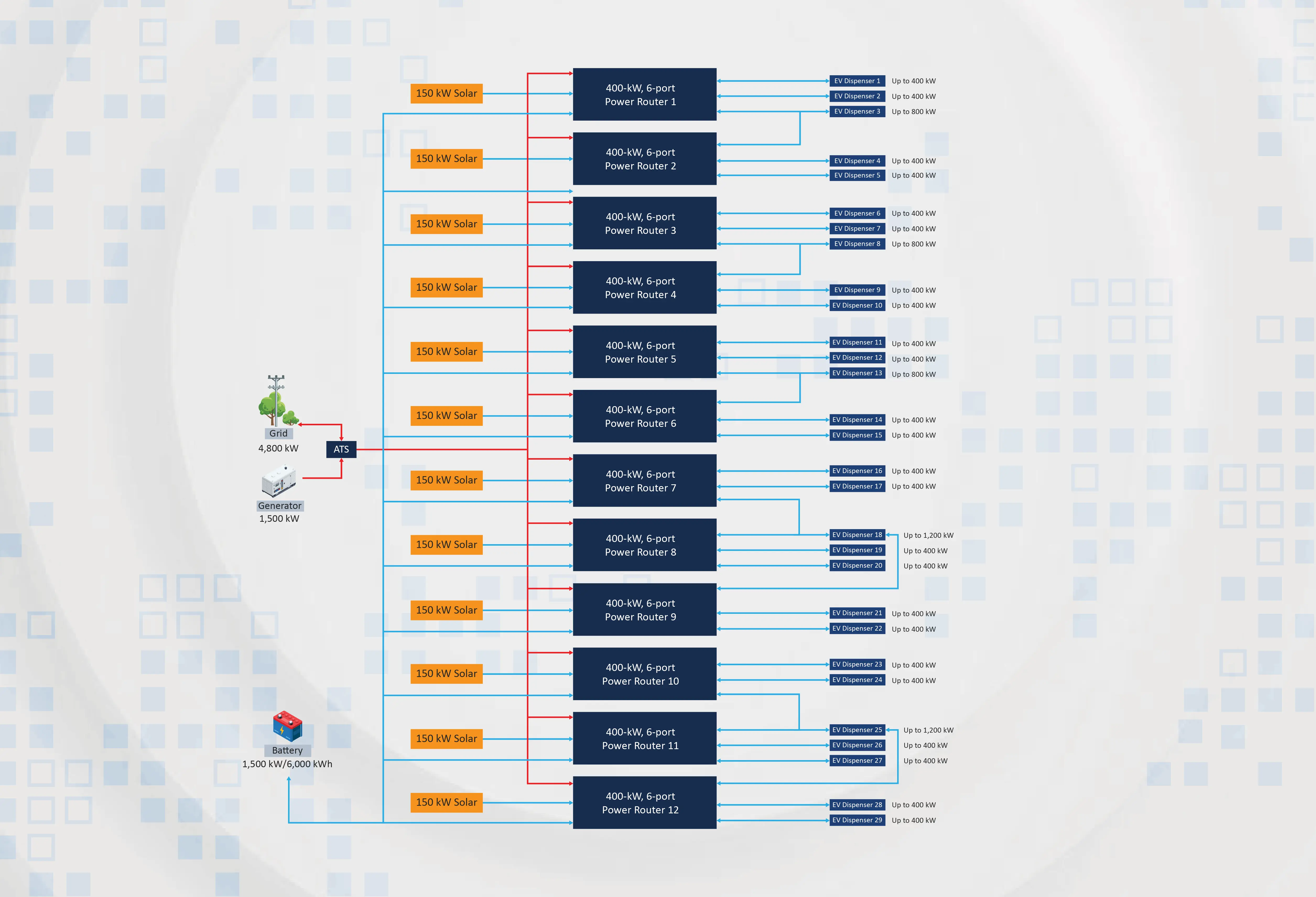Executive Summary A major logistics and freight company aims to deploy large-scale public heavy-duty electric truck (eTruck) charging infrastructure to support the transition to zero-emission freight transportation. Rising fuel costs, tightening emissions regulations, and the need for scalable electrification solutions drive the company to seek an efficient, future-proof energy management system. DG Matrix develops a solution leveraging its Power Router technology to integrate solar energy, battery storage, and grid power while ensuring cost savings and reliability. The deployment achieves an internal rate of return (IRR) exceeding 12% and a payback period of less than 8 years, positioning the company as a leader in sustainable logistics. Challenges 1 The customer faces multiple energy-related challenges, including: High Fuel and Energy Costs: Diesel price volatility and rising electricity demand charges make the transition to electric fleets financially challenging.
Grid Constraints and Infrastructure Limitations: Limited grid capacity at highway locations poses a significant barrier to fast-charging deployment. Long Charging Downtime: Inefficient energy management and power limitations extend vehicle turnaround times, impacting logistics efficiency. Sustainability Compliance: Increasing pressure to reduce carbon emissions in line with government mandates and corporate ESG goals. Requirements and Priorities To tackle these challenges, the freight operator outlines key objectives: Cost Optimization: Lower overall energy costs while minimizing infrastructure 1 upgrade expenses. Scalability: Deploy a flexible solution that grows with EV truck adoption. Fast Charging Capability: Enable high-power, megawatt-level charging with minimal downtime. Energy Resiliency: Ensure uninterrupted charging through renewable integration and backup power. Simplicity and Efficiency: Implement a standardized, user-friendly charging network with real-time energy monitoring and load balancing.



